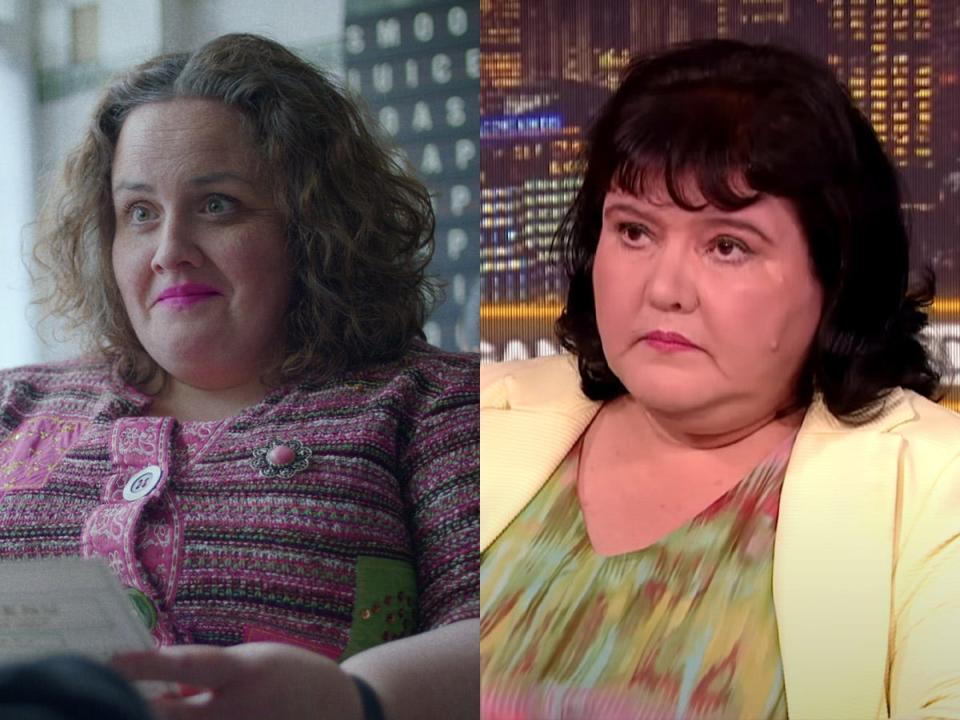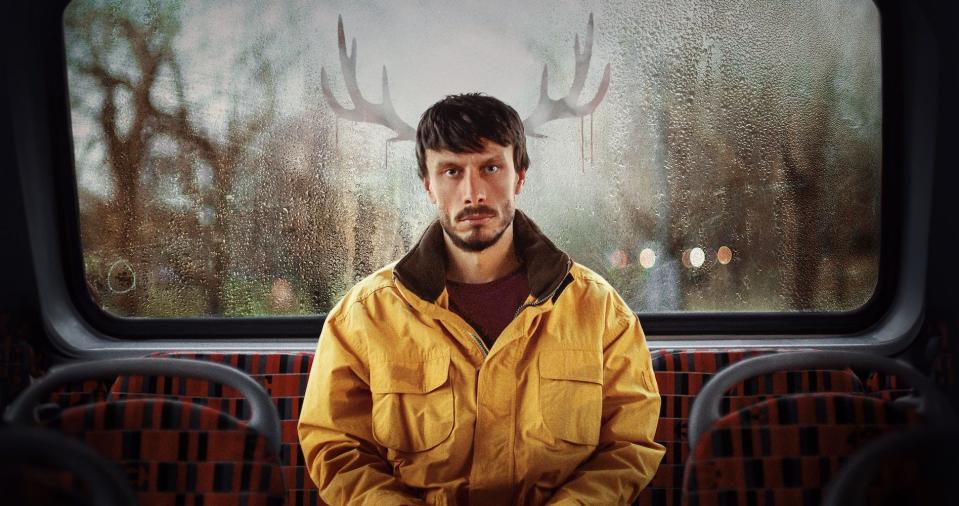Netflix may have hurt itself in the 'Baby Reindeer' lawsuit with one line in the opening episode, attorneys say

Fiona Harvey filed a defamation lawsuit against Netflix this week over "Baby Reindeer."
She said Netflix misrepresented her as a convicted stalker, and lawyers told BI she may have a case.
The lawyers said the main issue may be how Netflix marketed the show as a "true story."
Fiona Harvey, the woman who claims to be the inspiration for the character Martha Scott in the show "Baby Reindeer," filed a defamation lawsuit against Netflix for $170 million this week — and she may actually have a case.
That's according to two entertainment lawyers who told Business Insider Netflix may have made several mistakes that could work in Harvey's favor.
Perhaps the biggest issue for Netflix is a simple, five-word line that appears onscreen near the top of the first episode of the seven-part series:
"This is a true story."
The show, which became a sensation after premiering on Netflix in April, was created by Scottish comedian Richard Gadd, who also stars as Donny Dunn. Dunn is based on Gadd, who has said the show depicts a real-life experience in which he was stalked early in his career.
Shortly after the show premiered, internet sleuths — despite pleas from the cast — tried to find the inspiration behind the stalker character, "Martha Scott."
In an interview with Piers Morgan last month, Harvey admitted she had known Gadd but denied stalking him or ever being convicted of stalking. She also said she was considering taking legal action against Netflix.
In a lawsuit filed Thursday, Harvey accused Netflix of defamation and intentional affliction of emotional distress, saying the company misrepresented her and made her easily identifiable, resulting in reputation damages. The lawsuit, which does not name Gadd as a defendant, seeks more than $170 million in damages.
"Defendants told these lies, and never stopped, because it was a better story than the truth, and better stories made money," the complaint said.
In a statement provided to Business Insider on Friday, a spokesperson for Netflix said, "We intend to defend this matter vigorously and to stand by Richard Gadd's right to tell his story."
Tre Lovell, a Los Angeles entertainment attorney with The Lovell Firm, told BI he thinks Harvey has a "very strong case" based on her complaint if she can demonstrate that the show made her readily identifiable and made false claims.

'Baby Reindeer' and fictionalized truth
The attorneys who spoke to BI noted that fictionalized dramas in which a real person is depicted generally acknowledge that the work is not 100% true and that aspects have been changed or added.
The declaration "This is a true story" is notably different than when a work states it is "inspired by" or "based on" a true story.
Netflix does include a disclaimer at the end of the "Baby Reindeer" credits that reads: "This program is based on real events: however certain characters, names, incidents, locations, and dialogue have been fictionalized for dramatic purposes."
But Lovell said it's unlikely the average viewer would notice it.
"The argument will be, 'Well, a consumer is looking at that and thinking everything in this is true, and you're purposely hiding the disclaimer about fictionalizing the characters on the back end,'" Camron Dowlatshahi, a Los Angeles entertainment attorney with Mills Sadat Dowlat LLP, told BI. "Then when you follow it up with press saying everything is true, then that's where the issue is."
Gadd, for his part, told The Guardian in April that the show was "tweaked slightly to create dramatic climaxes."
"It's very emotionally true, obviously: I was severely stalked and severely abused. But we wanted it to exist in the sphere of art, as well as protect the people it's based on," he said.
It didn't take long for internet sleuths to find Harvey
Gadd, who urged fans not to try to identify the real people the story is based on, has also said they changed the Martha character so much that the real-life person she was based on would likely not recognize herself in the show.
"What's been borrowed is an emotional truth, not a fact-by-fact profile of someone," Gadd told GQ.
However, in her lawsuit, Harvey claims that she and the Martha character several similarities, including their gender, age, nationality, and profession. The show even uses some of the same strange phrasing that Harvey appeared to use in a tweet directed at Gadd years ago, a post that fans quickly found, according to the lawsuit.
Harvey accused Netflix of not doing enough to conceal her identity.
Dowlatshahi said he thinks Netflix has some decent arguments against that accusation, including that they used a different name and changed some facts about her.
But Lovell believes that Netflix could've done much more, including changing basic details about the character.

Harvey may end up getting something from Netflix
Dowlatshahi called the amount of damages Harvey seeks "exorbitant," adding he doubts she could get that much.
However, Lovell noted a string of recent high-profile defamation cases in which plaintiffs have been awarded huge sums, including the two Georgia election workers awarded $148 million in a defamation case against Rudy Giuliani.
Both lawyers agreed it was highly unlikely the case would go to trial and that Netflix would more than likely settle, as the company did earlier this week in a defamation lawsuit filed over the 2019 series "When They See Us."
Lovell said Netflix would likely try to argue Harvey was already a public figure, which can raise the bar in a defamation case by requiring proof of "actual malice" — or that the defendant knew the claims made were false or had a reckless disregard for the truth. He said the company would likely argue that Harvey was not readily identifiable and that they acted reasonably.
But he added that the claims Harvey is accusing Netflix of making up about her — committing actual crimes and serving prison time — are about as straightforward as they can get.
If Harvey can demonstrate that she was readily identifiable in the show and that Netflix made up those claims about her, he said, "This is the worst type of defamation."
Read the original article on Business Insider

 Yahoo News
Yahoo News 
